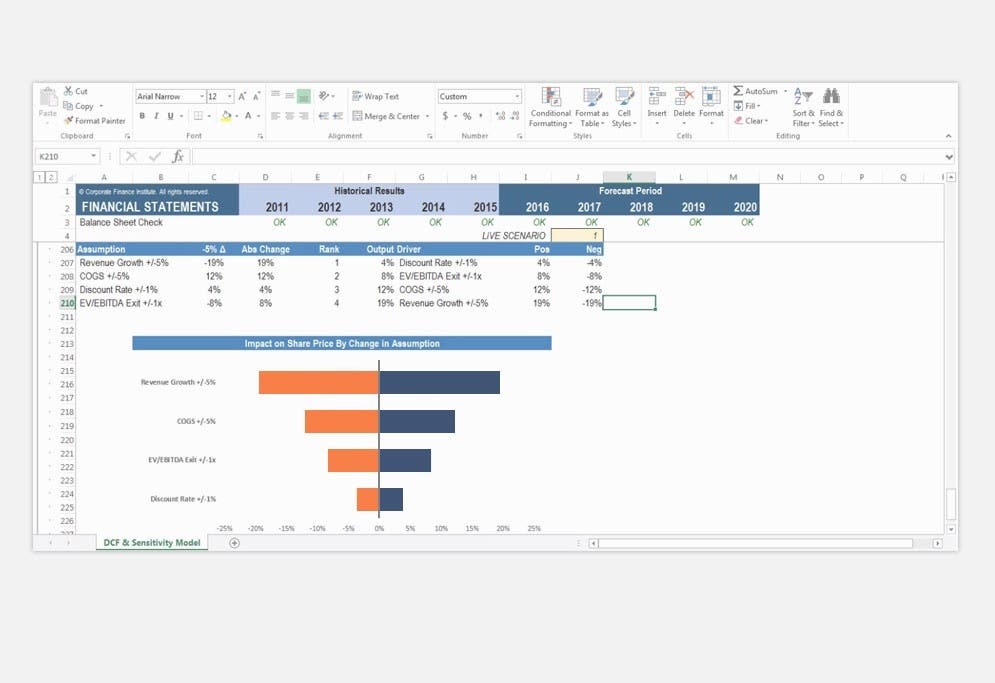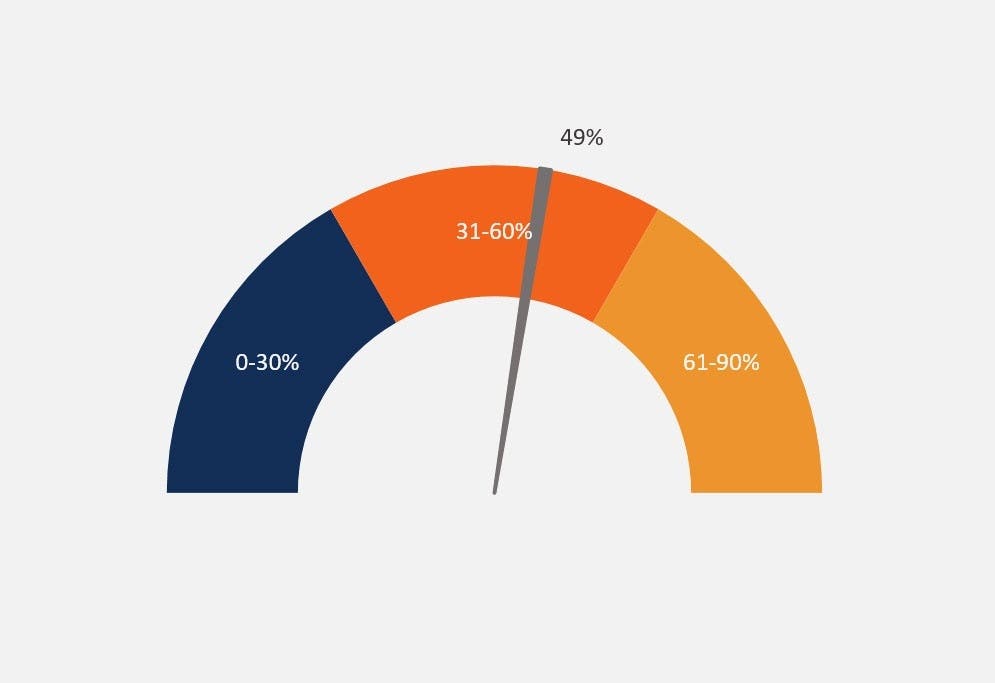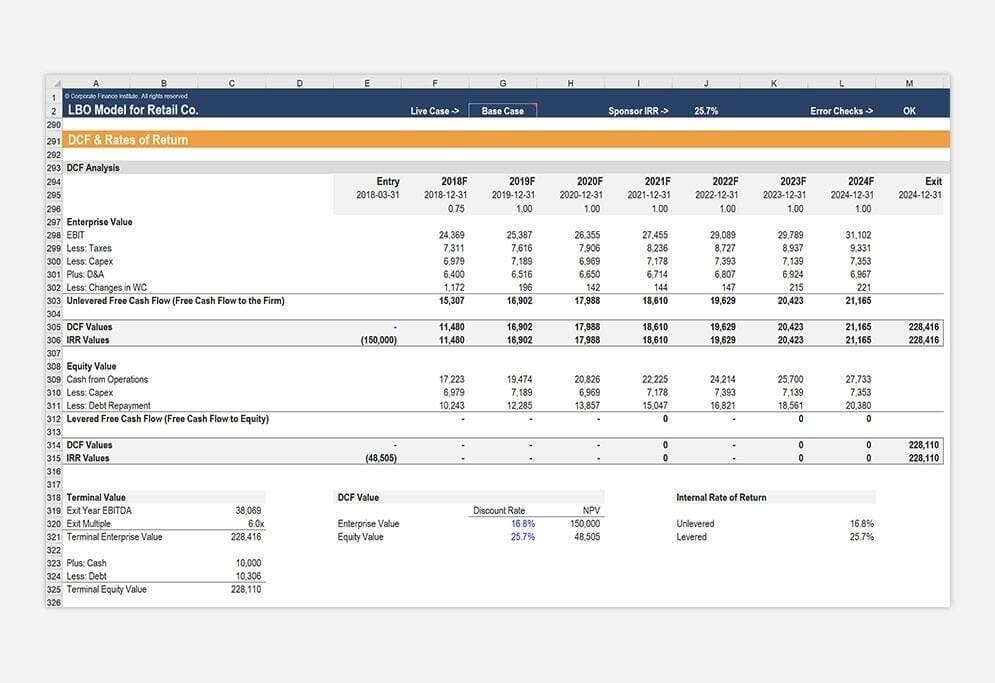What’s New CFI: FP&A for New Analysts with Carl Seidman
In this episode of FinPod, we discuss FP&A for new analysts with expert Carl Seidman. Carl has over 20 years of experience in management consulting and FP&A advisory. In this conversation, he highlights the growing demand for FP&A in Fortune 500 companies and the shift towards proactive finance roles.
Carl addresses how to enter the FP&A field without a specialized degree, emphasizing skill development and transitioning from general finance backgrounds. He also shares the importance of critical thinking, communication skills, and understanding of business dynamics for a successful career in FP&A.
Transcript
Asim (00:14)
Hello and welcome to the What’s New at CFI podcast. I’m Asim Khan and I am joined today by Carl Seidman. And our topic will be FP&A for new analysts. Carl, please tell us a bit about yourself.
Carl Seidman (00:29)
Thanks, Asim. Thanks for having me. So I have been in management consulting and FP&A advisory work for the last 20 years. Started my career at PWC on the advisory side, then went into turnaround restructuring before starting my own practice. And my practice focuses on FP&A advisory work and consulting, FP&A implementation, training and development is also fractional CFO work. So helping companies grow their people, develop their processes and make sure that they have FP&A teed up for the next chapter of their lives.
Asim (00:58)
Thank you for that. And so as a stand-alone practice, does FP&A, is it kind of hot right now? Is it in demand? Is it a growing field?
Carl Seidman (01:07)
It’s extremely in demand and is growing very rapidly. So if you were to take a look into any Fortune 500 company, many of these companies have invested significantly in their FP&A teams, not just hiring their people, but investing in their people and making sure that the people who are serving in corporate finance and accounting and FP&A as a whole are not merely reactive finance professionals, not merely focused on reporting, but they are much more focused on
proactive thinking, positioning the company for the next chapter or phase of its life, being able to clean up data, be able to access that data and analyze it, forecast as they need to do, and recognizing that as companies are continuing to invest in their FP&A functions and technology and people, that creates more jobs and more opportunities for young people as well as mid-career professionals who want to get into FP&A.
Asim (01:59)
As far as I know, as far as we know, there’s no degree specialization at the undergraduate or graduate level for FP&A. Being that that’s the case, how does one get into this field if you’re coming, say, straight out of undergrad?
Carl Seidman (02:15)
It’s a great question and you’re right, there is no undergraduate specialization at any university as far as I know. Focus on FP&A. A lot of them are perhaps a little bit more well-rounded in general finance, but if somebody is going to be positioning to get a role in an FP&A analyst position, there is really no education aside from I studied accounting or I studied finance. So one of the challenges that
I see that I experience is that for young people who want to get into this field, there isn’t anything to really jump off of. And so it’s a little bit more around the skills development, the awareness of how do I transition what I do know and what I am capable of in accounting and finance over to FP&A. But one of the reasons why I encourage young people, young professionals, to get the skills and experience
is to be able to effectively explain to hiring managers or hiring directors how you’re going to be able to add value. It’s not that you have a diploma, it’s not that you have a degree from a university, it’s I have the skills, I have the experience, I have the know-how to be able to make a difference in your FP&A group.
Asim (03:28)
Right, and I would just like to point out that you’ve written a course for us entitled FP&A for New Analysts.
On the back of that we recently rolled out a full suite of FP&A courses, seven in total. And I’d encourage anybody who’s interested in going to the field to check those out. It’s a sort of training you can get supplemental to your college education. You’ve mentioned things like critical thinking more than once. So let’s talk for a second about the skills that somebody needs to
position themselves for a job in FP&A but once they’re in to be successful.
Carl Seidman (04:06)
When I started out in my career two decades ago, part of the requirement for entry was a degree in finance. I started again in big four accounting or big four consulting really. So I was expected to have a CPA and then also have some basic technical skills. Now when I take a look back at the beginning of my career, some of those technical skills were financial and accounting acumen
financial modeling, Excel awareness, but it quickly became obvious that there was more to it than just that. I needed to be able to think critically, analytically, strategically, and perhaps what I might say, subjectively. As it relates to FP&A, that’s what it’s all about as you start to climb the ladder and accelerate throughout your career. Is yes, you need to understand some foundations of financial modeling, finance and accounting, but perhaps more so it’s how to understand the business
how to understand the products, how to understand and build processes within your company, as well as understanding the dynamics of your industry or your sector. That’s not necessarily something that is learned from school, that’s something that is learned from exposure and awareness and time that you’re spending in FP&A. In addition, something that I don’t think is taught in school that is absolutely paramount is communication skills, being able to
not just write concise emails, but to be able to put together simple explanations that are informative, that provide intelligence to financial and non-financial business partners in a way that they can understand. And then finally, also recognizing that if your finance, all of what you do is not just focused on finance, you’re focused on helping non-financial people in
So it’s understanding not just finance and your industry, but how other people serve in their roles in their company and how you can help and support them.
Asim (06:07)
So it’s a pretty comprehensive look. It’s just not like a finance geek job where you’re crunching Excel models all day, right? There’s some subjectivity, a lot of subjectivity that goes into your thinking.
Carl Seidman (06:13)
Absolutely.
Right, and as I often share with people is, particularly at the more junior levels of FP&A, one of the complaints that I hear from managers and directors are, our analysts are focused on doing, they’re focused on the tasks, what I want them to be able to do is think bigger, think bigger picture and understand how they can support me, how they can support other people within the business, rather than just be a project focused doer at the analyst level.
Asim (06:48)
So I think this is like something really critical, so I wanna go a little bit deeper into it. How does a 21-year-old develop that sort of mind?
Carl Seidman (06:58)
It’s a wonderful question, Asim, and there are a few layers to pull back here. Is one, I think that you have to have education and skills development to help that person grow, not just professionally, but also personally as an individual. That means having support from the inside of their organization or of their firm, of saying, Asim your development as a professional
It’s not just for you, it’s for us too. So you growing yourself, you developing is a long-term investment in you, but the long-term investment we are making in your development means we benefit as well. And there’s another point that I’ll raise, your Asim and this is difficult to teach. I think it’s more innate in the persona of the individual is there has to be a desire, there has to be a thirst. Earlier in my career, I used to think, perhaps erroneously,
that all I had to do was be smart, work hard, put my nose down and do the work and people are gonna notice what I’m doing, I’m gonna get promoted and I’m gonna get good opportunities. But it’s more than that, you’ve gotta be thirsty and hungry for that development, for those opportunities, seek those opportunities out and find people who can create them for you, especially as a junior FP&A professional.
You might not have the credibility nor the clout in an earlier part of your career to create those opportunities, but you gotta meet people who support you, who are gonna give you a pathway upon which you can grow, work for a company that’s going to support and invest in you, and then take a look around and say, where are the opportunities? Where are the pain points? What can I do to make a difference and be willing to take that on?
Asim (08:44)
That’s a wonderful response. So it’s a two-way investment, right? The company’s investing in you, and you’re making the effort to develop yourself along a particular path.
Carl Seidman (08:54)
For sure, I totally believe that. And if a company is not willing to invest in the person and the person’s willing to invest in themselves, I think what sometimes may happen is that person may outgrow that role and go find an organization that is supportive and does need somebody of that caliber.
Asim (09:11)
Right. So I wanted to touch briefly on AI, and I know it’s not your specialty, but we kind of see it everywhere. And has it started making inroads into FP&A from what you can see?
Carl Seidman (09:27)
Yeah, so obviously we’re in the infancy, perhaps the early innings of AI. And I should maybe make a disclaimer here of saying, we’re not necessarily in the early innings of AI as a whole. AI has been around for decades. It’s used in a whole different array of applications outside of business, outside of finance. But I think what has happened is AI has become more of a consumer accessible technology within the last handful of years that now
Your average person has at their fingertips access to very powerful technology. The question of what’s AI going to do in business and finance. I think we’re still early in terms of what it can and will do, but in my own experience working with it, it assists in inefficient work. So during the day I leverage AI because I say, look, I need some help organizing my thoughts, putting together.
a narrative or putting together even formulas and a model, I might say, this is what I’m putting together, give me five alternatives that might be more beneficial than this one. And in the speed of 20 seconds, I’m able to get five alternatives to what I’m doing, whereby if I did it without that kind of assistance, it would take me, you know, perhaps five minutes. You might say, oh, well, five minutes, that’s not a lot of time. Well, look, if I can do it in 20 or 30 seconds, why not do that?
So I think that there’s gonna be some perhaps lower level activities that while we can do it, I don’t know that it’s the best use of our time. The big question I think that many of us are asking and many of us don’t have the answer for yet is, well, what’s gonna be the threshold? At what level do we say, yes, it’s helping me, it’s helping me, it’s helping me be productive, but I have now reached the plateau of what I want AI to do for me. That’s when I need to turn on my brain and say,
AI is over here, human brain is over here. Let’s have them work together instead of saying, let’s have AI replace us.
Asim (11:25)
Yeah, no, that’s a really good point. Carl, in summary, and thank you for all of your thoughtful responses today.
Are there, could you give us perhaps three pieces of advice, critical advice for the new analyst in FP&A?
Carl Seidman (11:42)
Yes, at the outset, I think from a philosophical and values perspective is recognize that the learning never stops, the growth never stops. So it’s not that you cross this finish line of, oh, now I have all of the skills and all the experience and all of the awareness that I need to be successful. You can get that through many chapters of your life and your career. And when you get to one finish line, another one gets created.
So as you mentioned, Asim, as it relates to AI, I’m just learning that now. I’ve had over a two decade long career, but I’ve reached the threshold on some of my technical expertise and development, but now there’s something new. So the first point is always have a thirst, always have a hunger for learning new things because that learning never stops. The second, make sure that you’re focusing on your technical skills. Those are the table stakes. Those are the pillars of entry.
If you don’t have the technical skills on finance and accounting and Excel or Google Sheets or financial modeling or analytical skills, you’re going to struggle in your career. And it’s not just later on, it’s early. The reason I say that Asim is because once you start to master the technical skills, you’re going to start elevating into management, directorship, possibly even senior leadership, and you might not be doing that technical work anymore.
You’re going to be supervising and training and developing and mentoring more junior people and teaching them how to do it. And then the third point is focus on your own non-technical skills and your own non-technical development of saying, it’s not just about me becoming a really good technical finance expert, it’s about me becoming an exceptional communicator. Great with time management, being able to lead and drive projects forward.
identify where the opportunities or where problems are within my company and be willing to solve them. Combining all three of those things together of lifelong development, mastery of technical skills and constant evolution of the softer side of your ability, I promise you whether you are a junior analyst or a CFO or somebody in between, those three focus areas are going to serve you immensely well throughout the duration of your career.
Asim (13:59)
You’re going to go somewhere. Right. So thank you so much, Carl, for your time today and your words of wisdom and your sage advice and expertise. We hope to see you again on this podcast somewhere soon down the road.
Carl Seidman (14:03)
Absolutely.
Great, thank you so much, Asim. Thanks for having me.
Asim (14:17)
Thank you.





